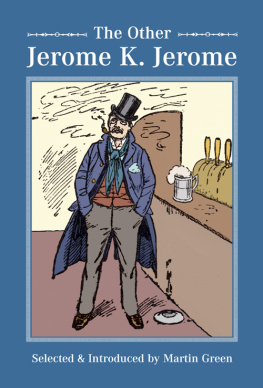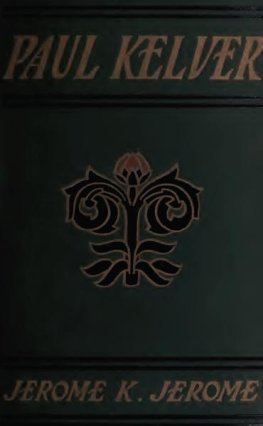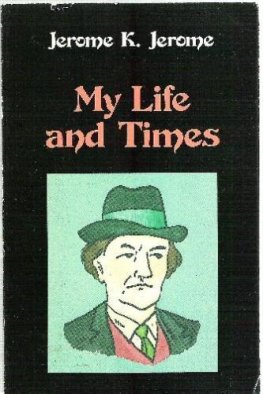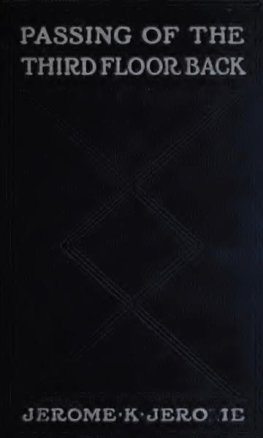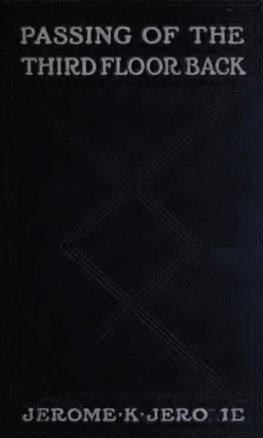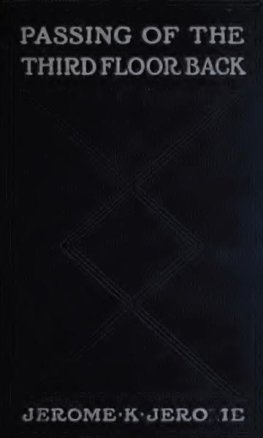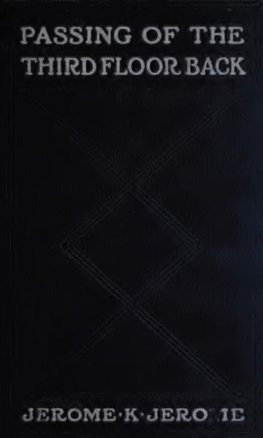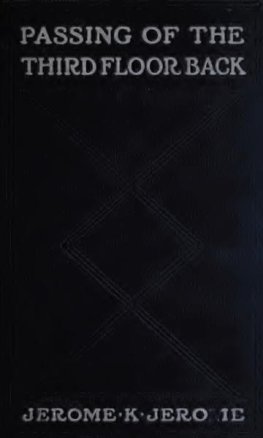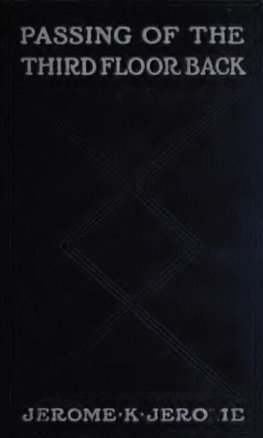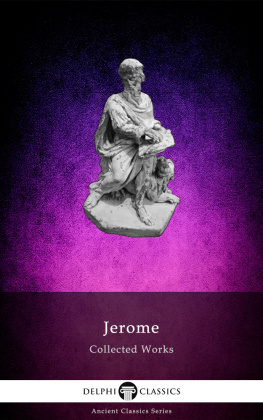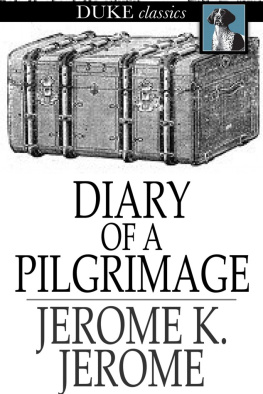Selected & Introduced by Martin Green
First published in this form 1984
This edition published 2009
The History Press
The Mill, Brimscombe Port
Stroud, Gloucestershire, GL 5 2 QG
www.thehistorypress.co.uk
This ebook edition first published in 2011
All rights reserved
Introduction & selection Martin Green, 1984, 2009
The right of Martin Green to be identified as the Author of the introduction to this work has been asserted in accordance with the Copyrights, Designs and Patents Act 1988.
This ebook is copyright material and must not be copied, reproduced, transferred, distributed, leased, licensed or publicly performed or used in any way except as specifically permitted in writing by the publishers, as allowed under the terms and conditions under which it was purchased or as strictly permitted by applicable copyright law. Any unauthorised distribution or use of this text may be a direct infringement of the authors and publishers rights, and those responsible may be liable in law accordingly.
EPUB ISBN 978 0 7524 7236 2
MOBI ISBN 978 0 7524 7235 5
Original typesetting by The History Press
Contents
My Life and Times (1926)
On the Stageand Off (1885)
On the Stageand Off (1885)
The Idler (1892)
The Idler (1892)
Stage-Land (1889)
The Idler (1893)
The Observations of Henry and Others (1901)
The Passing of the Third Floor Back (1907)
Diary of a Pilgrimage (1891)
Malvina of Brittany (1916)
Malvina of Brittany (1916)
My Life and Times (1926)
Introduction
This selection from the works of Jerome K. Jerome is an attempt to show that the popular conception of him as simply a writer of a couple of very funny books does him an injustice. It is also hoped that it will encourage his admirers to read further into Jerome and to establish him as a popular author in his own right. Jeromes output was not particularly prodigious by the standards of the time when compared with his contemporaries such as H. G. Wells, Rudyard Kipling or Rider Haggard, but in fact for a number of years he was not only writing on his own behalf, but also editing The Idler, a monthly magazine which he had co-founded with two others in 1892, and also To-Day, a popular weekly paper which ran from 1893 to 1905. His association with both these periodicals ended in 1898, as the result of a disastrous libel actionfor all parties except the lawyers, that isin which the plaintiff, a company promoter from Leeds, was awarded a farthing damages against the editor of To-Day. As no order was made as to costs, both parties had to pay their own, Jeromes being 9000 and those of Samson Fox, the plaintiff, being 11,000 (in todays terms these sums would be breathtaking). Both parties shook hands after the case and Samson Fox said he was returning to Leeds to strangle his solicitors and he hoped Jerome would do the same. Jerome only managed to salve his financial fortunes by the sale of his interest in both papers.
During the period leading up to the libel case Jerome had been putting in a fourteen-hour day and was still able to find time to write for the theatre as well as for a nationwide lecture tour.
Jeromes career as a writer developed from unpromising beginningsunless, that is, you believe that poverty is the nursemaid of genius. Jerome Klapka Jerome was born in Walsall, Staffordshire, in 1859, the second son and fourth child of a mine-owning Nonconformist preacher whose fortunes collapsed almost immediately after his sons arrival in the world; the Jerome pit was flooded on the day that Jerome junior achieved his first birthday. The dowry that Jeromes mother had brought to her husband (her father had been a prosperous Swansea solicitor) had been sunk into the pit, after an attempt at farming and stone-quarrying in Devon. With what little there was left, Jeromes father came up to London and tried his hand in the ironmongery trade in the East End, sending for his family when Jerome was three years old. Jeromes earliest memories were of the grim poverty of the surrounding streets, and he was extremely lucky to get a place at the St Marylebone Grammar School, to which he travelled every day from Poplar. He remained there until he was fourteen, shortly after the death of his father and just before that of his mother. He then entered the bleakest period of his life, living alone and working as a clerk for the Great Western Railway at Euston. He broke away from his clerical existence by taking a job as a schoolmaster in Clapham and then, screwing his courage to the sticking point, taking to the stage. It was his experience as an actor touring the country that gave him his first success as a writer, when a series of comic sketches he wrote about the stage were published in a popular paper and then subsequently published as a book, On the Stageand Off. From his beginning as an itinerant journalist covering coroners and police courts, his career as a writer proceeded with remarkable speed.
Jerome became a popular author, and a playwright whose plays ran successfully in London and New York, though he never managed to get away from the slur of vulgarity that Punch attached to him when it dubbed him Arry K. Arry.
In the year he wrote his most famous book, Three Men in a Boat, he married one Georgina Stanley who already had a daughter of her own. She had another daughter by Jerome and by all accounts they lived happily together thereafter.
He had grown fond of Germany and the Germans after residing in Dresden, and though he initially welcomed the First World War he was unable to believe the atrocity stories put about, and he said so publicly. He was sent by the British Government with a delegation to America to enlist sympathy for the British cause and on his return his sense of impotence and frustration led him to try to enlist, but he was told he was too old. However, he managed to join a French ambulance unit serving on the Western Front.
His only work of importance after the war was his My Life and Times published in 1926, much more attractively written than the fey and sentimental attempts at autobiographical fiction which he produced in Paul Kelver, a novel greeted with tepid enthusiasm by the reviewers and which he thought was his greatest work. He fell ill while on a motoring trip to England in 1927 and died in Northampton, not a congenial place for writers, as John Clare had discovered earlier.
The selection that makes up this collection gives a portrait of Jerome K. Jerome in his own words that complements his own memoirs and reflects his interests and achievements. Beginning and ending with chapters from My Life and Times, it encapsulates his experience as an actor while giving examples of his occasional pieces from The Idler, as well as a number of his short stories.
While Jerome was always in danger of veering towards a kind of mystical sentimentality (demonstrated deliberately here by the inclusion of The Passing of the Third Floor Back, a short story which, turned into a play, assured his success as a playwright), when he did stick to the story purely as a well-told tale, he occasionally achieved the depth explored by one of his fellow contributors to The Idler, Guy de Maupassant. On reflection, it is a pity that Jerome didnt concentrate more on the short story and less on his occasional journalism. Possibly it was the very ease with which he was able to write humorous sketches that distracted him from delving deeper into the human condition, as does Maupassant at his best and most savage. There is very little savagery in Jerome, and only rarely did he court unpopularity in his views, such as those he proclaimed early in the First World War, while his friends and fellow writers Kipling and Wells were joining in the atavistic jingoism of the day, or on one occasion in the American south where he rounded on his audience and denounced a recent lynching. Curiously enough, he did pay lip service to the music-hall anti-Semitism of his day, though his friendship with his fellow-writer Israel Zangwill, who was a regular contributor to

